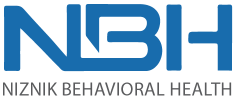When Should I Talk to My Kids About Substance Abuse?
How to Prevent Substance Abuse Early On
We want what’s best for our kids, always. But some things are difficult to talk about— especially topics like sex, drugs, and alcohol.
The commonality between these subjects is: abstinence doesn’t work.
If you’re wondering when the best time to talk to your children about substance abuse is, it was yesterday. Children are never too young to lap up knowledge. The younger you address substance use, the better. Elementary school students are no stranger to alcohol and illicit substances. The US National Library of Medicine reports illicit substance use among elementary school children varies from community to community but has been reported in children younger than ten.
Studies conclude boys are drawn to using cigarettes and alcohol more readily than girls. Children from the first to fifth grade analyzed during the study were assessed upon how readily they were willing to try said substances.
School children who said they planned to use cigarettes, alcohol, and marijuana when they were of age were flagged for potential substance abuse problems down the road.
What all this really boils down to is this:

Your kids are watching. They’re listening. Children are constantly absorbing information from home, television, school, and the people surrounding them. Their ideas of what’s normal (ie: mommy has a cigarette every time she’s upset) start with these influences.
Some of them, you won’t be able to control.
What you can control is how you prepare them to make the right decisions.
Destigmatizing Substance Abuse Is Your #1 Job
The same study elucidated our elementary school children quite readily identify cigarettes, alcohol, chewing tobacco, and marijuana.
To summarize, 25 percent of third-grade boys asked to identify marijuana, could.
Ladies and gents, that’s about 250 little boys who know what marijuana is. That’s 250 tiny humans who need help making the right decision down the road.
Not talking about addiction and illicit substances only hurt the very people you’re attempting to protect.
We are currently enthralled in the opioid epidemic. Alcohol and marijuana continue to battle for the title of “gateway drug,” and you’re here stuck in the middle of how to best communicate the right things, at the right time, to your mini-mes.
We get it.
It’s frustrating.
But we’ve got a job for you. It is the single most important thing you can do in the prevention of substance abuse: de-stigmatize addiction.
Talking to your children early on about making healthy decisions, like eating right, brushing their teeth, and being careful about the things they put into their body will serve them their entire lives. It’s never too early— or too late. Have the conversation.
Addiction is a disease resulting from uncontrollable substance use. Teach your children about drugs as you would any other subject. The more information they have, the better. Let them know addiction is a disease, like any other, that can be entirely prevented by making the right decisions.
Don’t sugar coat either. Tell them like it is.
Addiction is deadly. Addiction is real. And no one is safe.
So please, take the time to educate them.
Their life depends on it.
Enroll in the Best Substance Abuse Prevention Programs
Suspect your teenager of abusing addictive substances? Act fast. Time is against you.
Get them the help they need, before it’s too late.

